Are you looking for a simple jam recipe? Look no further! The smell of jam fills the air!! We just came back from a visit to Beirut and Paris. We spent some family time together with my mom and my in-laws! While we were there, mama made quince jam, using the wonderful smelling fruit sitting in her kitchen basket! Mom is widely creative and passionate about her jams! One of the most pleasurable moments for me is to look through her old torn sheet recipes and her old cooking magazines! I don’t know why !! Maybe this brings back fond memories of the dishes we enjoyed as children.
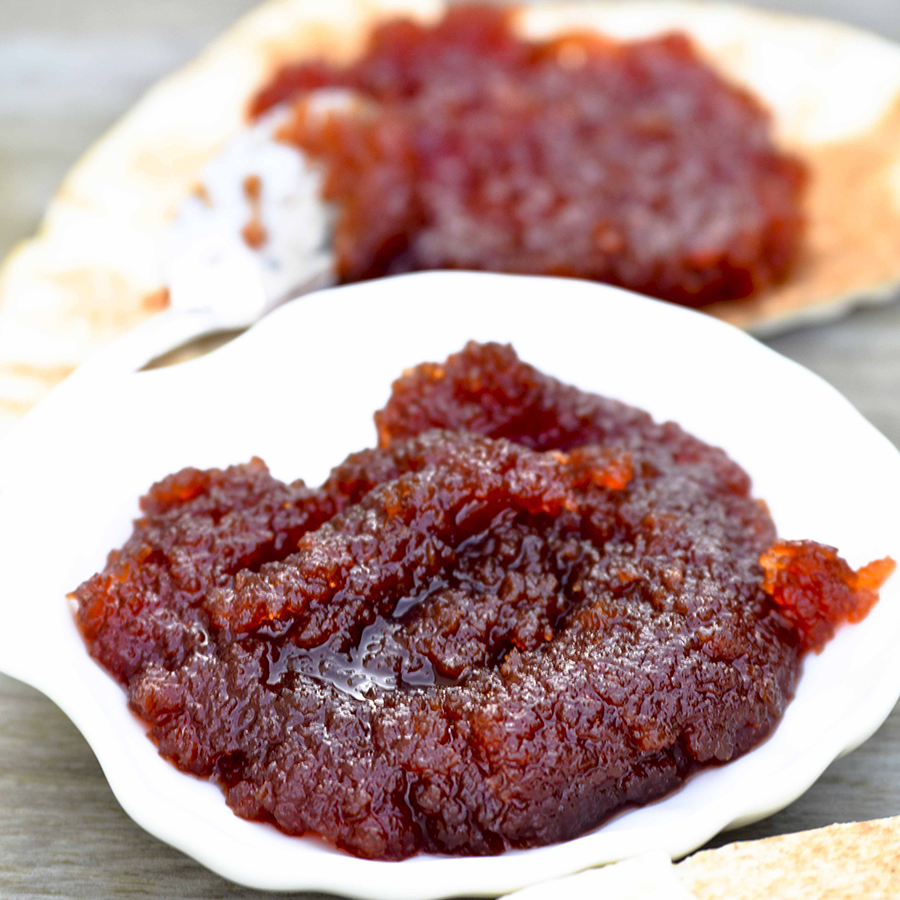
Quinces, a distant relative to apples and pears, make a wonderful, spreadable sticky jam.- though more mouth-puckering when eaten raw. The fruit is native to Lebanon, Iran, Turkey and Greece and a familiar tree throughout the Middle East; quince produces a natural pectin when cooked. The jam is flavored with mastic gum that adds a wonderful dimension.
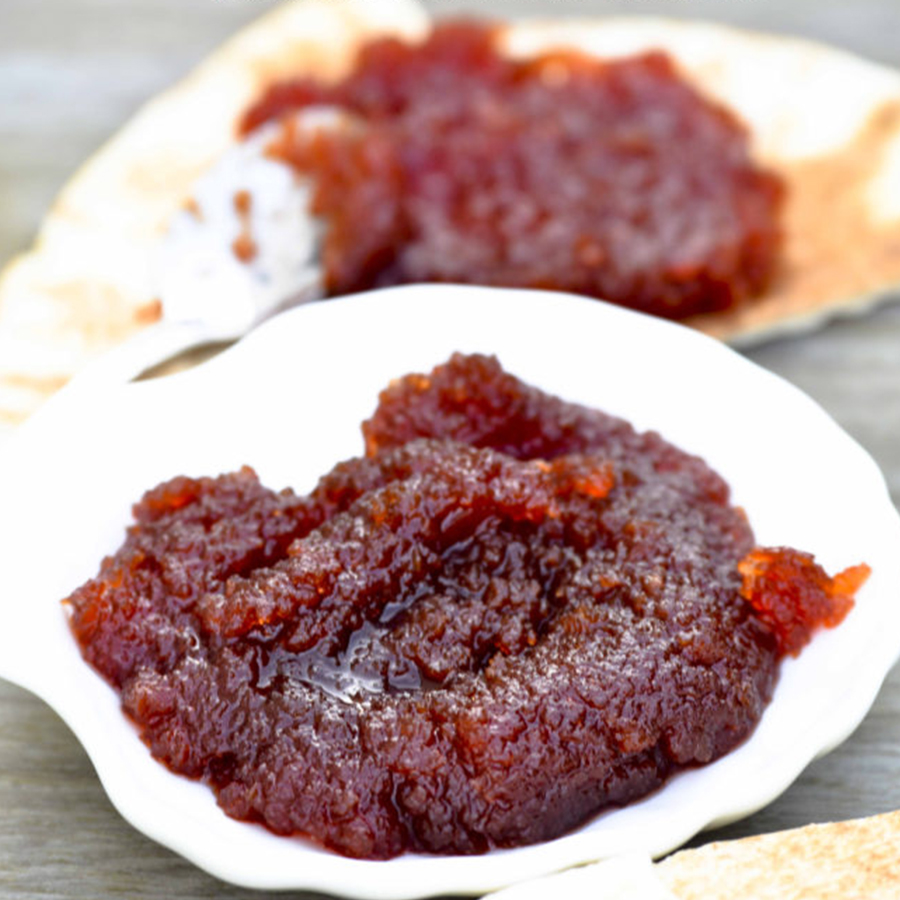
Quince is so good for you, here is an article about the health benefits of this underrated fruit from The Organic Facts and why you should include it more in your diet!
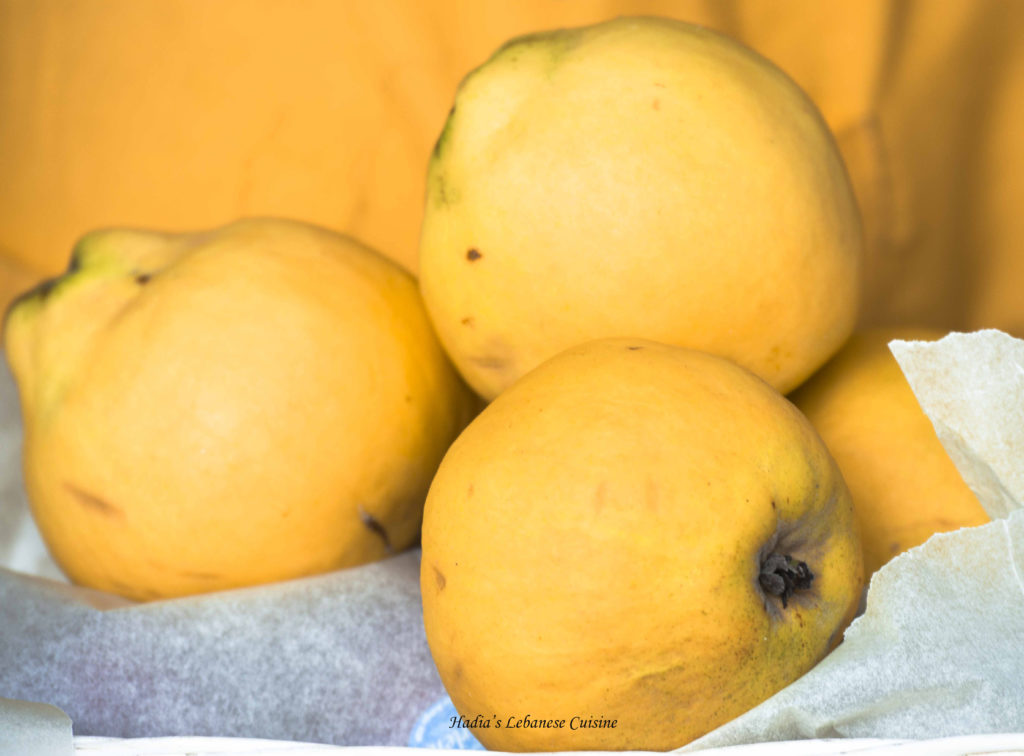
The good thing here is that the jam does not require food coloring or even pectin. The flesh of the fruit is beige in color when cut raw that naturally turns to red when cooked.
Have you ever thought of pairing mastic gum with jams? Yes, mastic goes enticingly well with jams, and here is a good example for that!
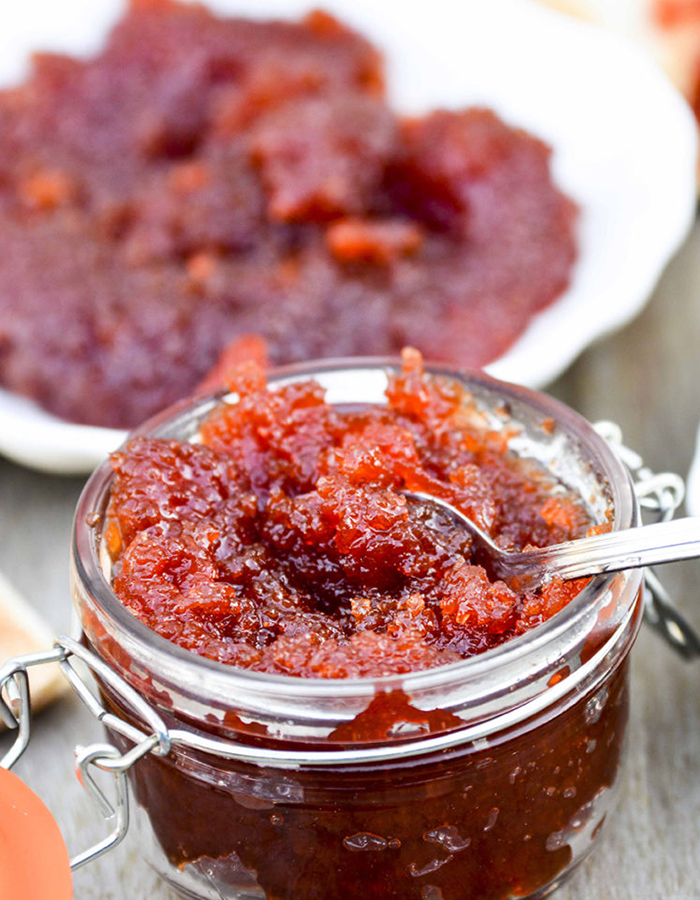
The jam is great with Arabic bread, toasts, scones or French baguette, crackers or just straight out of the jar! Em! Yes I do that!

Quince Jam, Mraba Al Safarjal
Description
Ingredients
- 1 kg /2 lb 4 oz. quince leave the peel on
- 1 kg / 2lb. 4 oz. sugar
- ¼ teaspoon citric acid hamod allaymoun or ¼ cup freshly squeezed lemon juice
- 8 mastic gum pods crushed with a pinch of sugar
- 1 tablespoon freshly squeezed lemon juice to be added at the end of cooking
Instructions
- Wash and pat dry the quinces
- Cut each in half, core and grate using a grater with large holes. Toss with sugar and let them sit overnight in the fridge.
- Transfer the quince-sugar mixture to a heavy bottomed saucepan, add the citric acid or the lemon juice and bring to a boil, reduce heat to low.
- Cook for 11/2 hours uncovered, stirring every now and then and make sure heat is reduced to low.You will notice the quince starts to turn pink-red and thickens a bit (I like mine well clotted)
- Crush the mastic gum with a pinch of sugar and add to the jam; add an additional tablespoon of freshly squeezed lemon juice, stir well. Remove from heat and set aside to completely cool down before transferring to sterilized jars. Refigerate and it will keep up to 1 year


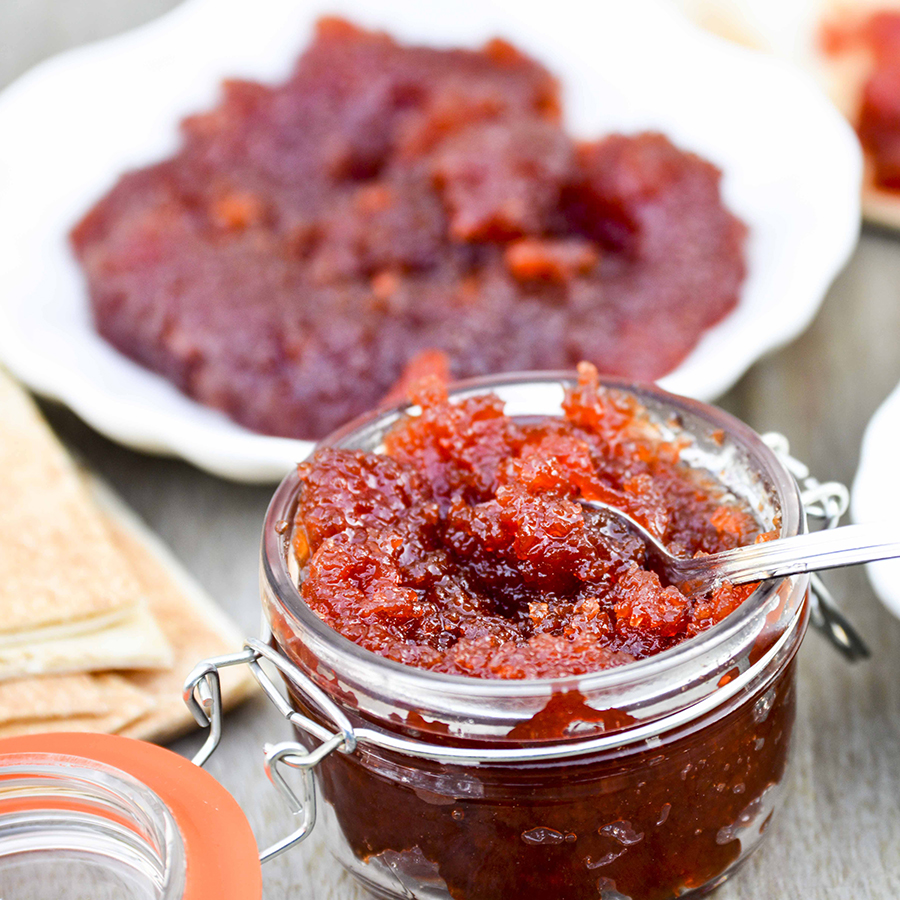
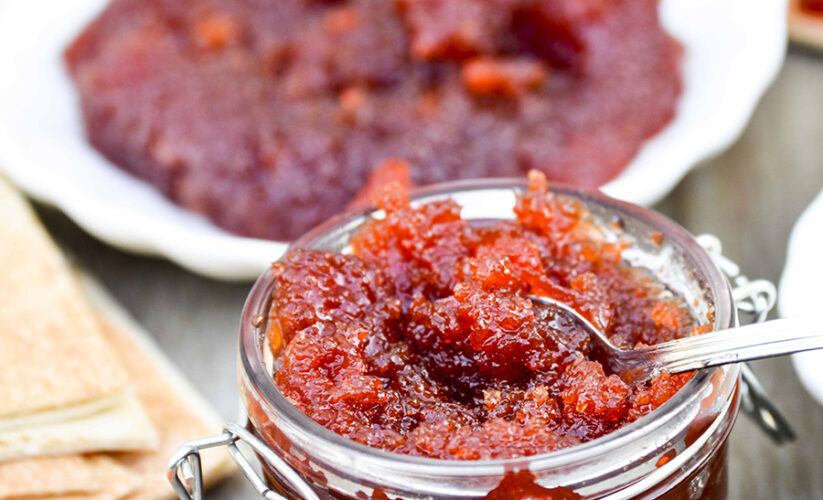
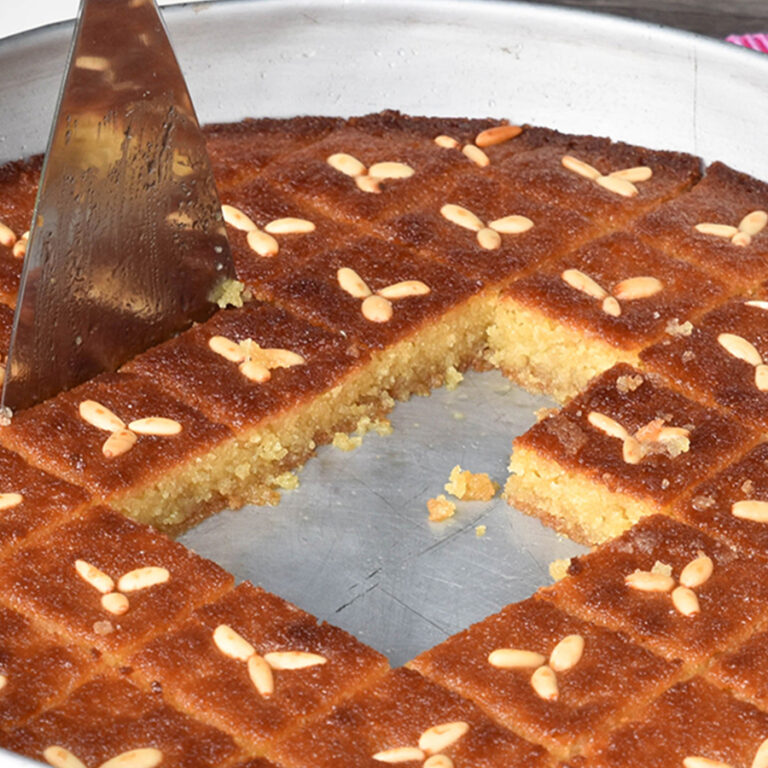
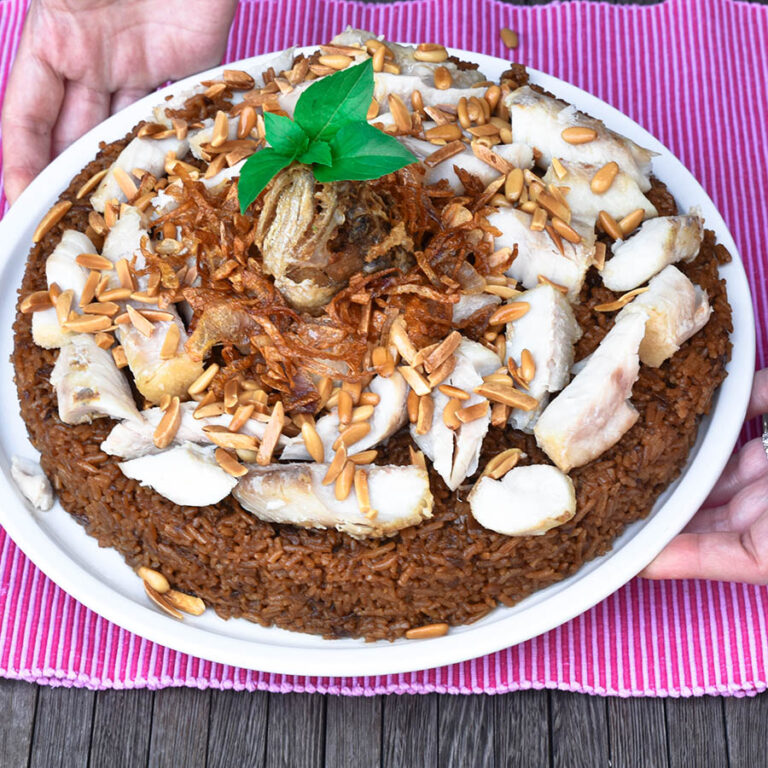
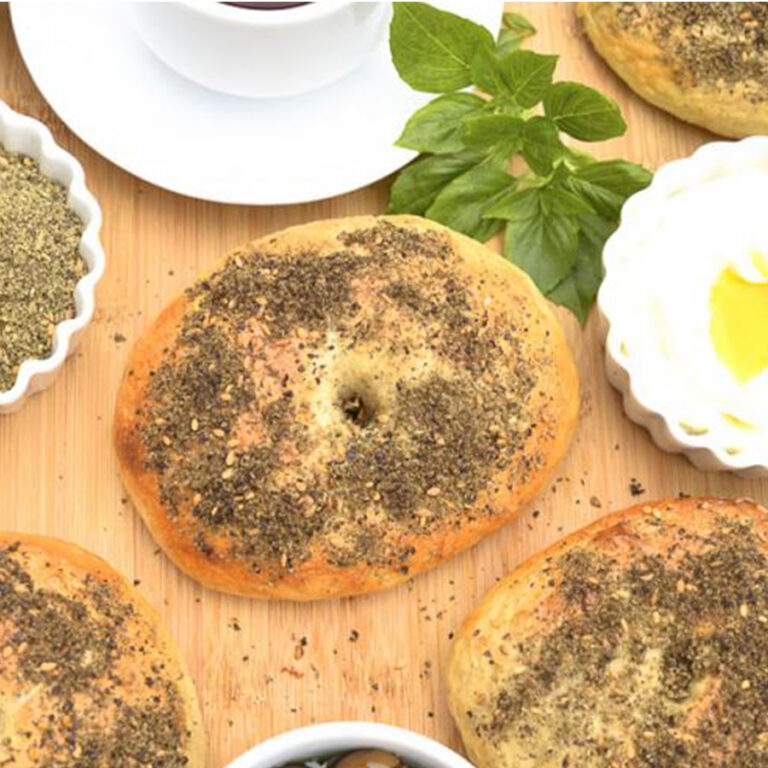
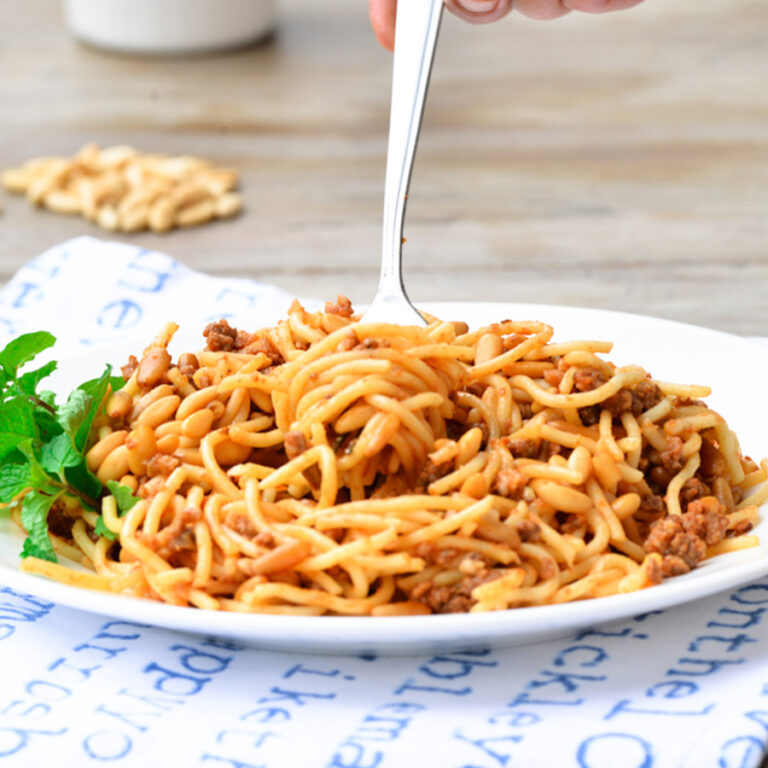

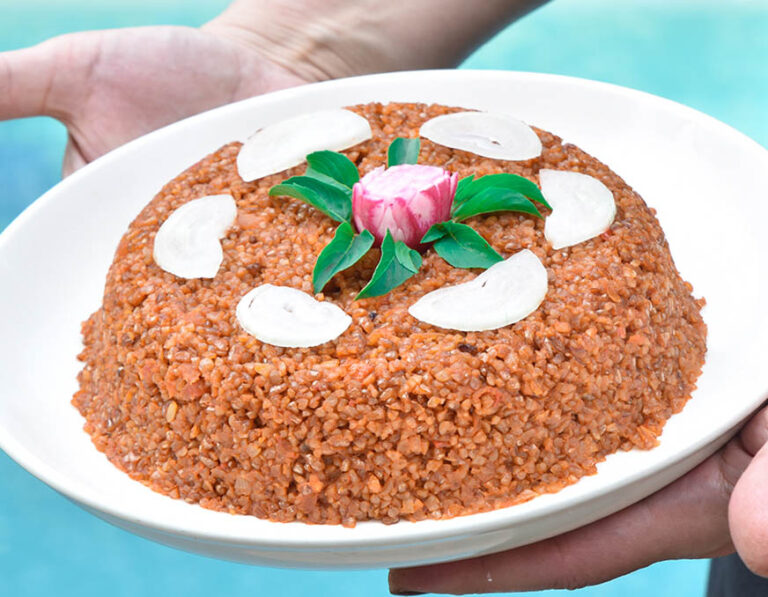
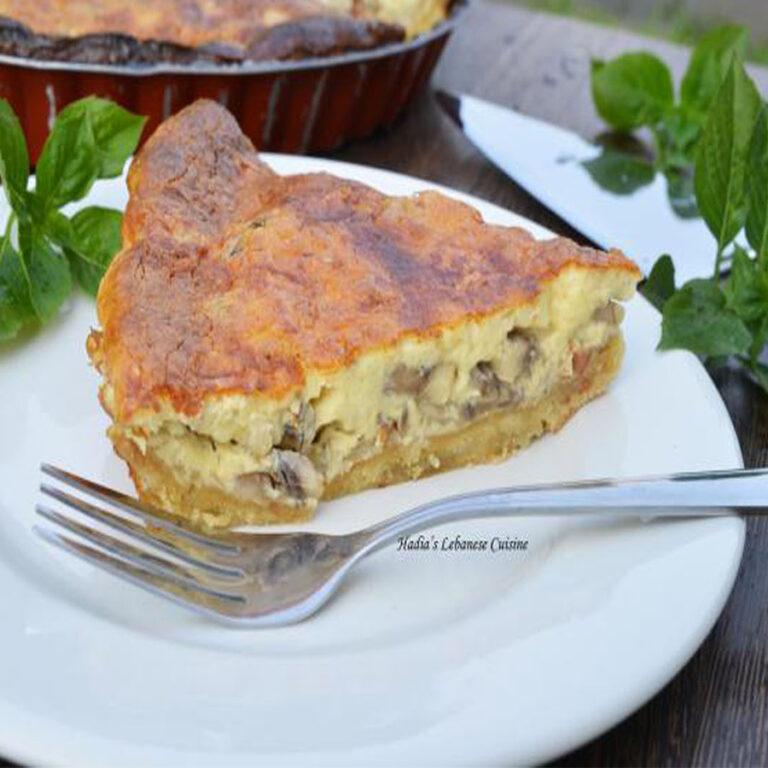

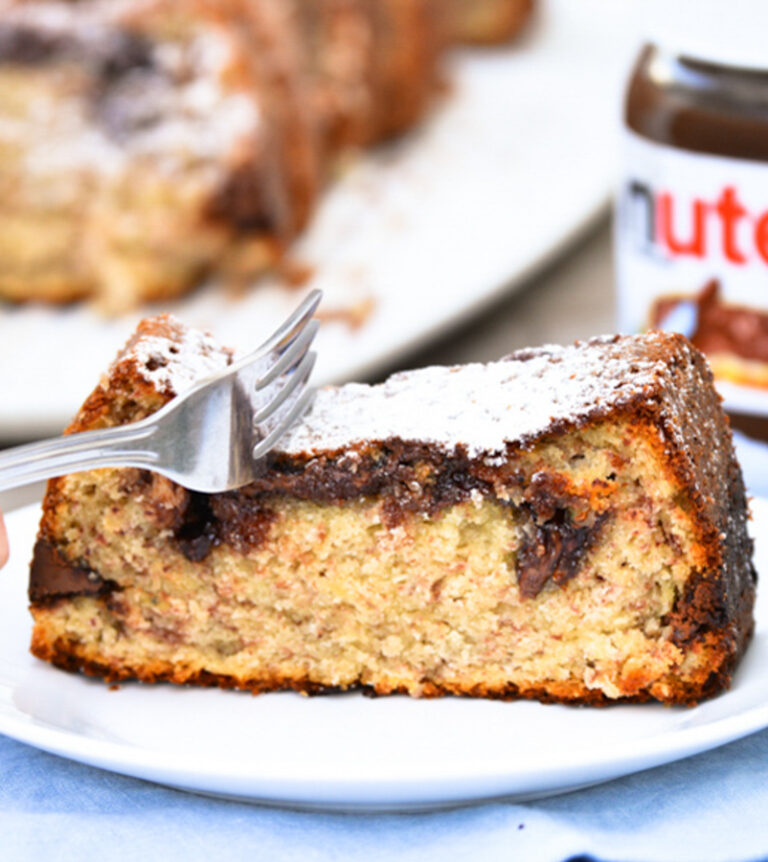



















6 Comments
Quinces are incredible good!
Where I”m leaving quine jelly was popular at granmother times, but then it almost disappeared from the homemade recipes.
Now I noticed that more and more quices trees appears in the garden; that quince jam, quince jelly and quince paste are highly appreciated.
A cute quince jam jar makes a wonderful gift!
I have never used madtic ( I know this from the Greek cuisine) but I” m sure that this would be a great addition: I have to try this!
On Crete I”ve noticed that “scented geranium” leaves are used to perfume spoon sweets with quinces.
Thanks for the very informative post and for promoting quinces! 🙂
Do I have to use mastic him? Don’t know where to find it
3 tweaks:
1. keep the quince seeds, put them in a tea bag and cook them with the other ingredients. The seeds release polysaccharide which is a good jelling agent.
2. try less sugar (i.e. 600gr per kilo of quince). It will bring out more of the quince taste.
3. add a dash of orange blossom water (or extract) for taste…
I loved this recipe of all the ones I tried, for the grated effect. I added a few spices and am making it again this year
Thank you, Pam, for the feedback. I am happy you liked.